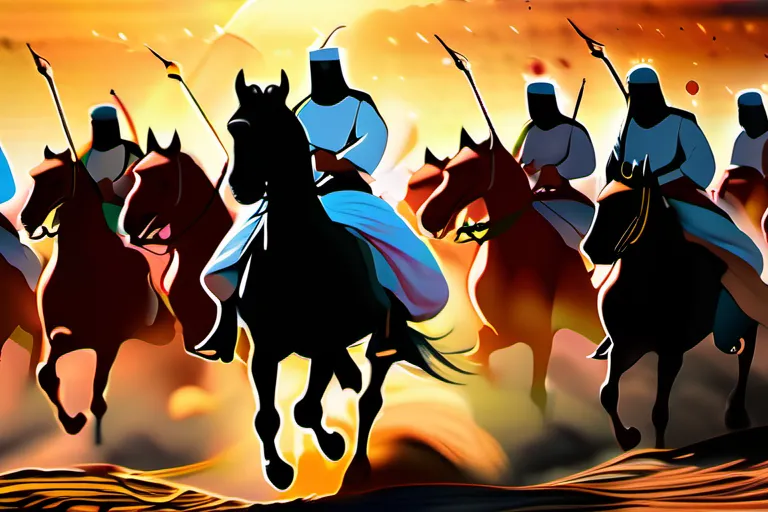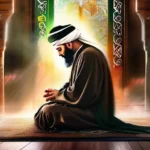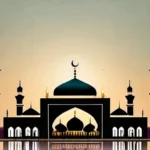Explore the historical, religious, and cultural significance of the Battle of Karbala for Shia Muslims.
Delve into the profound impact of the Battle of Karbala on Shia Islam, a pivotal event that continues to shape the faith today.
The Historical Context: The Battle of Karbala
The Battle of Karbala, fought on the 10th of Muharram in the year 680 CE, remains a pivotal event in Shia Islam’s history and spirituality. Imagine a battleground where not just soldiers clashed but souls fought for justice and faith. This battle was more than a skirmish; it was a moral confrontation between good and evil, represented by Imam Hussein and his followers against the oppressive Caliph Yazid I.
Before we delve into the details of this historic day, let’s ponder: How did such an event come to pass? The roots of the conflict lay in political power struggles within the Muslim community. After the death of Prophet Muhammad (PBUH), various factions vied for leadership, leading to the establishment of the Umayyad Caliphate under Yazid I. His rule was marked by corruption and disregard for justice, setting the stage for a rebellion.
Imam Hussein, the grandson of Prophet Muhammad (PBUH) through his daughter Fatima, stood as a symbol of resistance against tyranny. He received an invitation from Yazid to pledge allegiance, which was a demand that went beyond mere submission—it demanded loyalty and support for an unjust ruler. This request was akin to asking someone to choose between their conscience and their king: “Would you rather bend the knee or stand tall?”
The decision faced by Imam Hussein encapsulated the essence of the battle itself. He chose the path less traveled, embracing martyrdom for the sake of justice and truth. As he led his small army towards Karbala, he knew that this journey would be fraught with peril but also with purpose. It was a choice that would echo through history, inspiring generations to stand up against injustice.
The march towards Karbala became a pilgrimage of faith for Imam Hussein and his followers. Each step they took could be seen as a testament to their unwavering commitment to the principles of Islam. As they arrived at the battlefield, surrounded by thousands of Yazid’s army, the contrast between light and darkness was stark—between the righteousness of their cause and the injustice that awaited them.
This historical context sets the stage for our next exploration into the life and character of Imam Hussein, who became a martyr for justice, leaving an indelible mark on Shia Islam. His story intertwines with that of Karbala, making it a tale of valor, sacrifice, and the eternal struggle for truth.
Imam Hussein: A Martyr for Justice
The story of Imam Hussein, often referred to as the third Shia Imam and a pivotal figure in Islamic history, is one that resonates deeply within the heart of every Shia Muslim. Who can forget the tale of his courage, his unwavering commitment to justice, and his tragic end at the Battle of Karbala? How did this noble soul come to embody the very essence of sacrifice for what is right?
Imam Hussein was born into a world where power and politics often dictated religious practices. His grandfather, Prophet Muhammad himself, had laid down principles that emphasized peace, compassion, and justice. Yet, by the time Imam Hussein stood up against Yazid I, the Caliph of his time, the political landscape had become corrupt and oppressive.
Imam Hussein’s decision to challenge Yazid was not merely a personal choice; it was a stand for the principles he believed in. He faced overwhelming odds, leading a small group of supporters into a desert where they would be surrounded by much larger forces loyal to Yazid. The journey to Karbala became a metaphorical path of truth and righteousness.
At Karbala, Imam Hussein’s army was vastly outnumbered, but their spirit was unyielding. The battle that ensued was not just a military conflict; it was an ideological clash between the forces of tyranny and justice. As days turned into nights, Imam Hussein’s unwavering commitment to his principles inspired those around him.
His martyrdom at Karbala is seen as a testament to the power of standing up for one’s beliefs. Through his sacrifice, Imam Hussein became more than just an individual; he symbolized hope and resistance in the face of oppression. His legacy continues to inspire generations of Muslims who strive to uphold justice and righteousness.
By understanding Imam Hussein’s character and role in history, we gain insight into the core values that guide Shia Islam: the importance of standing up for what is right, even when it means facing great personal cost. The battle at Karbala may have been fought on a battlefield centuries ago, but its lessons resonate still today.
The Significance of Ashura: Mourning the Martyr
The observance of ashura, the 10th day of the month of Muharram, holds a profound significance for Shia Muslims. It commemorates the tragic martyrdom of Imam Hussein, the grandson of the Prophet Muhammad, at the Battle of Karbala. As we delve into this solemn day, one cannot help but wonder why such an event continues to resonate deeply within the hearts and souls of millions across the world.
The narrative of ashura is more than just a historical account; it is a living testament to the principles of justice and righteousness. By reflecting on the events that unfolded at Karbala, Shia Muslims are reminded of the values that Imam Hussein fought for—values that continue to guide their lives today.
Imagine standing by the banks of the Euphrates river, witnessing the valiant but futile stand made by a small group of devotees against overwhelming odds. The symbolism of this battle is not lost on many; it serves as a powerful reminder that even in the face of injustice and oppression, one must stand firm and uphold their beliefs.
The rituals and mourning practices associated with ashura are deeply moving. They include reciting poetry, performing self-flagellation (taziyah), and wearing black clothes to symbolize grief and mourning. These acts serve as a way for individuals to connect personally with the tragedy of Karbala, making it more than just an historical event but a personal experience.
As we observe ashura, we are not merely remembering the past; we are participating in a timeless struggle against oppression and injustice. It is a reminder that our actions today can shape the future and that standing up for what is right is never easy, yet always necessary.
Through the observance of ashura, Shia Muslims find strength in unity and solidarity, recognizing that their collective struggle continues to this day. The battle at Karbala may have ended centuries ago, but its lessons live on, guiding believers to uphold justice and compassion in all aspects of life.
As we continue our journey through the significance of Karbala in Shia Islam, it is clear that ashura plays a pivotal role. It serves as both a historical marker and a living guide for believers, ensuring that the memory of Imam Hussein lives on and inspires generations to come.
The Impact on Shia Islam: A Turning Point in History
The Battle of Karbala, fought over 1300 years ago, has left an indelible mark on the fabric of Shia Islam. How can such a historical event continue to resonate so powerfully in modern times? The significance of Karbala goes beyond mere history; it is woven into the very tapestry of Shia faith and identity.
The long-term effects of the Battle of Karbala on the development of Shia Islam are profound. This pivotal moment transformed a religious movement into a distinct community with its own beliefs, practices, and institutions. The martyrdom of Imam Hussein, the grandson of Prophet Muhammad (peace be upon him), became the cornerstone of Shia doctrine. His sacrifice highlighted themes of justice, resistance against tyranny, and the preservation of true faith—a message that continues to inspire believers today.
The impact of Karbala can also be seen in the way it shaped the cultural landscape of Shia Islam. Festivals like Ashura, which commemorate the events at Karbala, have become more than just religious observances; they are vibrant expressions of community and shared history. These gatherings serve as a reminder of the principles of righteousness and self-sacrifice that Imam Hussein exemplified.
Moreover, Karbala has influenced the political and social consciousness of Shia Muslims, fostering a deep sense of unity and solidarity. The event has been invoked countless times to advocate for justice and human rights, becoming a symbol of resistance against oppression. In this way, Karbala’s legacy transcends its historical context and remains relevant in contemporary contexts.
In essence, the Battle of Karbala stands as a beacon of hope and resilience in the face of adversity. Its enduring significance lies not just in its past but also in its present and future. How can such a powerful narrative fail to inspire generations of Muslims, reminding them of the importance of standing up for what is right?
The Legacy of Karbala: A Symbol of Sacrifice and Devotion
The Legacy of Karbala: A Symbol of Sacrifice and Devotion
How can one explain the profound impact of the Battle of Karbala on Shia Muslims? It’s like a beacon, shining brightly through the centuries, illuminating the path of courage and devotion. Is it not true that the story of Imam Hussein’s sacrifice resonates deeply within every Shia heart? How could we possibly measure its significance in the spiritual landscape of Islam?
Imagine Karbala as a pivotal moment, shaping not just a historical event but also a cultural ethos. It is a narrative filled with selflessness and purity, embodying ideals that transcend time. Every year during Ashura, pilgrims retrace those fateful steps, weaving through the fields where Imam Hussein stood firm against overwhelming odds. What drives them? Is it merely the tragic tale of a martyr, or is there something more profound at play?
The Battle of Karbala has become a symbol of resistance and resilience. It teaches us that in the face of oppression, one must stand strong, even if it means sacrificing everything. Can we see this as a call to action for every Shia today? How can we draw inspiration from Imam Hussein’s example to uphold justice and righteousness in our own lives?
Karbala stands not just as a memory but as an ever-present reminder of the values we should strive to embody. It challenges us to reflect on our own commitments and sacrifices, asking: Are we willing to stand for what is right, even when it’s difficult? The legacy of Karbala is one that continues to inspire, guide, and unite Shia Muslims in their journey through life.
The Battle of Karbala: A Call to Action for Shia Muslims
The Battle of Karbala: A Call to Action for Shia Muslims
Could it be that the lessons from the Battle of Karbala still resonate today, urging us to stand up for justice? The echoes of Ahmed bin Talib’s plea for peace ring through history, a call that reverberates even in our modern world. Just as he stood before Yazid’s army with an empty quiver and a lone sword, can we face the challenges of today without hesitation?
In the eyes of Imam Hussein, who chose martyrdom over surrendering his principles, lies a profound message for every Shia Muslim: to be steadfast in one’s beliefs even when the odds are overwhelmingly against us. This is not just a battle fought on that fateful day; it’s an ongoing struggle within ourselves and our communities.
The Battle of Karbala was more than a clash of armies; it was a showdown between tyranny and righteousness, oppression and freedom. Can we, in the 21st century, find parallels to this conflict in our pursuit of justice? From political corruption to social injustices, are these not battles we must engage?
Shia Muslims today are called upon to reflect on their role in this ongoing struggle. Are we ready to stand up for what is right, even when the path may be fraught with dangers and challenges? Just as Imam Hussein did, can we embrace the courage of our ancestors and fight for a world where justice prevails?
As we remember Karbala, let us not merely commemorate a historical event. Let it be a catalyst that ignites within us a commitment to uphold the values of truth, integrity, and justice. In this age of rapid change, the lessons from Karbala serve as a beacon, guiding us towards actions that can truly make a difference in our society.
Can we hear the call of Karbala once again? Can we rise up when faced with challenges, just as Imam Hussein did on that day? The answer lies within each one of us. Will you answer the call?
Conclusion
 Understand the enduring legacy of Imam Hussein and the Battle of Karbala in the hearts and minds of Shia Muslims worldwide.
Understand the enduring legacy of Imam Hussein and the Battle of Karbala in the hearts and minds of Shia Muslims worldwide.











